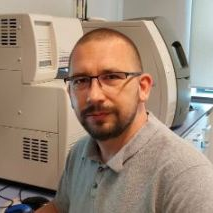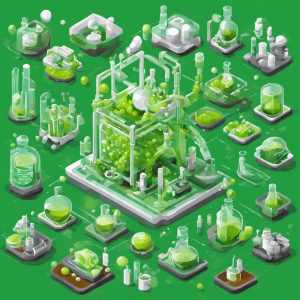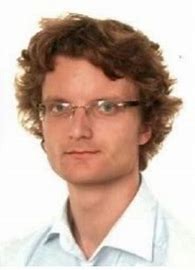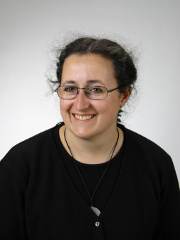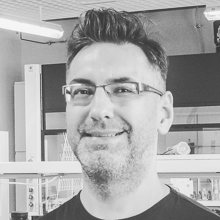About This Course
The aim of this course is to broaden the knowledge of STEM teachers on the basics of Green Chemistry.
After completing the Course, participants will be able to introduce elements of Green Chemistry into
their classes. Based on the given examples, they will also know how to assess the greenness of selected
chemical processes and how to make them more environmentally friendly. Participants then will be
asked to provide examples of their own greener laboratory instructions. They also will be encouraged
to comment other’s entries. This course is developed within the project “STEM Continuous Professional
Development at European Universities – STEM-CPD@EUni” funded by EU.
Upon successful completion of the entire course, the participants will receive the appropriate certificate.
Course Staff
Michał Woźniakiewicz
Prof. Michał Woźniakiewicz, a lecturer and a head of the Laboratory for Forensic Chemistry
at the Faculty of Chemistry, Jagiellonian University in Kraków, Poland. Author or co-author
over 80 papers on forensic and analytical chemistry as well as several ones on academic
teaching. A leader of the Chemistry in Everyday life Working Group and a member of Virtual
Education Committee (VEC) at ECTN. Coordinator of Jagiellonian University exhibition at
the Festival of Science and Art in Kraków.
Paweł Nowak
Dr. Paweł Nowak is a lecturer and scientist at the Department of Analytical Chemistry of the
Faculty of Chemistry, Jagiellonian University in Kraków. He is also the editor of a new Elsevier's
journal – Green Analytical Chemistry, launched in 2021. He defended his doctorate in 2016, the
subject of his dissertation focused on analytical separation techniques, in particular capillary
electrophoresis. Currently, his main research interest is green chemistry, in particular green
analytical chemistry. He is the author of the concept of "white analytical chemistry", which is an
extension of green analytical chemistry with criteria determining the functionality of analytical methods. He is
also the author of the Unified Greenness Theory, which is an attempt at a theoretical description of the main
concepts in the field of green chemistry and the relationships between them. As a lecturer, he conducts courses in
the field of separation techniques, bioanalysis, and green chemistry.
Iwona Maciejowska
Prof. Iwona Maciejowska, a lecturer and a researcher at the Department of Chemical Education,
the head of the Ars Docendi Council at the Jagiellonian University in Kraków, Poland. An editor,
an author and a co-author of books (15), papers (over 100) and courses for chemistry teachers
and academic teaching staff eg. MOOC on the Coursera platform "Teaching in university science
laboratories. Developing good practice". A co-editor of Chemistry Teacher International journal,
an initiator of the biannual European Variety in University Chemistry Education conference.
Bartosz Trzewik
Dr. Bartosz Trzewik was born in 1977 in Kraków, Poland. He received his PhD in chemistry in
2005 from Faculty of Chemistry of Jagiellonian University in Kraków and has been working there
since then. His scientific interest focuses on the synthesis of heterocyclic compounds and studying
physicochemical properties of them, eg. these connected with hydrogen bonds. Now he is a senior
lecturer at Department of Organic Chemistry, Faculty of Chemistry of Jagiellonian University in
Kraków. He conducts organic chemistry classes, mostly in laboratory, for students of chemistry
and related fields at basic and advanced levels. He has been involved in the creation and modification of courses
for students and participants of the doctoral school
